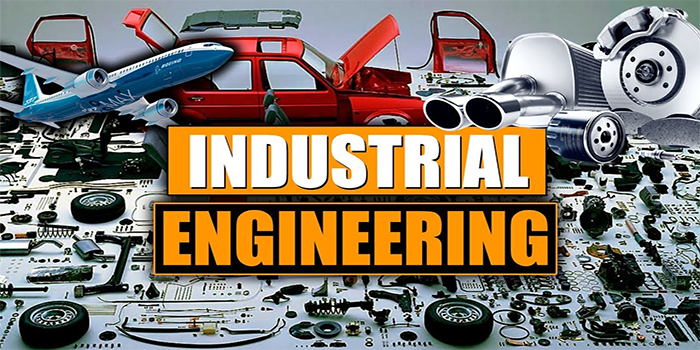
Industrial Engineers are responsible for improving efficiency and productivity in a wide range of industries. They develop systems and processes to optimize the use of resources and create solutions to problems that arise in production processes. They also analyze data and use their knowledge of engineering and mathematics to develop processes and procedures that increase efficiency and reduce costs. Industrial Engineers work in many different industries, including manufacturing, healthcare, transportation, and logistics.
Industrial Engineering Training Course
Industrial engineering is an interdisciplinary engineering field that focuses on improving the efficiency of production processes and systems. It combines elements from the fields of business, engineering, and management to ensure the efficient design, maintenance, and operation of industrial systems. This Industrial Engineering Training Course is designed to provide a comprehensive overview of the principles and techniques of industrial engineering.
Participants will learn about the various concepts, techniques, and tools used in industrial engineering, including process analysis, cost and time estimation, quality control, and facility layout. Through lectures and hands–on activities, participants will gain a better understanding of the application of industrial engineering techniques to improve productivity and reduce costs. The course will also cover topics such as safety and ergonomics, project management, and automation. Upon completion of this course, participants will be able to apply industrial engineering techniques to improve their own organization’s production processes.
Which Course is Best for Industrial Engineering?
The best course for industrial engineering depends on your interests and career goals. Generally, most industrial engineers pursue a bachelor’s degree in industrial engineering or a related field such as mechanical engineering, electrical engineering, or operations research. Depending on your interests and career goals, you may also pursue a master‘s degree in industrial engineering or a related field. Additionally, you may pursue professional certifications such as Certified Quality Engineer, Certified Reliability Engineer, or Certified Manufacturing Engineer.
How do Become a Certified Industrial Engineer?
To become a certified industrial engineer, you will need to meet the requirements of the Certified Professional Engineer (CPE) program. These requirements include holding a bachelor’s degree in engineering from an accredited institution, having at least four years of professional engineering experience, and passing an exam. You will also need to renew your certification every two years.
Best University name of Industrial Engineering in India
1. Indian Institute of Technology (IIT) Bombay
2. Indian Institute of Technology (IIT) Delhi
3. Indian Institute of Technology (IIT) Madras
4. Indian Institute of Technology (IIT) Kanpur
5. National Institute of Technology (NIT) Tiruchirappalli
6. Indian Institute of Technology (IIT) Kharagpur
7. Indian Institute of Technology (IIT) Roorkee
8. Delhi Technological University (DTU)
9. Birla Institute of Technology and Science (BITS) Pilani
10. Vellore Institute of Technology (VIT) Vellore
How do Start a Career in Industrial Engineering?
1. Research the field of industrial engineering: Take some time to research the field of industrial engineering and determine if it is the right career path for you. Learn about the various roles and responsibilities of industrial engineers and the best ways to gain the necessary knowledge and skills.
2. Earn a degree: Most industrial engineering positions require a bachelor‘s degree in industrial engineering or a related field. Consider taking additional courses in business, economics, and mathematics.
3. Get an internship: Seeking out an internship in the field of industrial engineering can help you gain valuable experience and build your network.
4. Network: Establishing connections with professionals in the field of industrial engineering can help you find job opportunities and learn about the industry.
5. Join professional organizations: Joining professional organizations related to industrial engineering can help you stay up–to–date on the latest trends in the industry and find job opportunities.
6. Get certified: Obtaining certification in industrial engineering can help you stand out in the job market and demonstrate your knowledge and experience.






